(Advertisement)
Tube City Community Media Inc. is seeking freelance writers to help cover city council, news and feature stories in McKeesport, Duquesne, White Oak and the neighboring communities. High school and college students seeking work experience are encouraged to apply; we are willing to work with students who need credit toward class assignments. Please send cover letter, resume, two writing samples and the name of a reference (an employer, supervisor, teacher, etc. -- not a relative) to tubecitytiger@gmail.com.
Ads start at $1 per day, minimum seven days.
In McKeesport, 1920 Was a Gas
Speculators poured millions into natural gas wells in ‘Snake Hollow,’ and lost it all
By Jason Togyer
The Tube City Almanac
January 01, 2020
Posted in: History
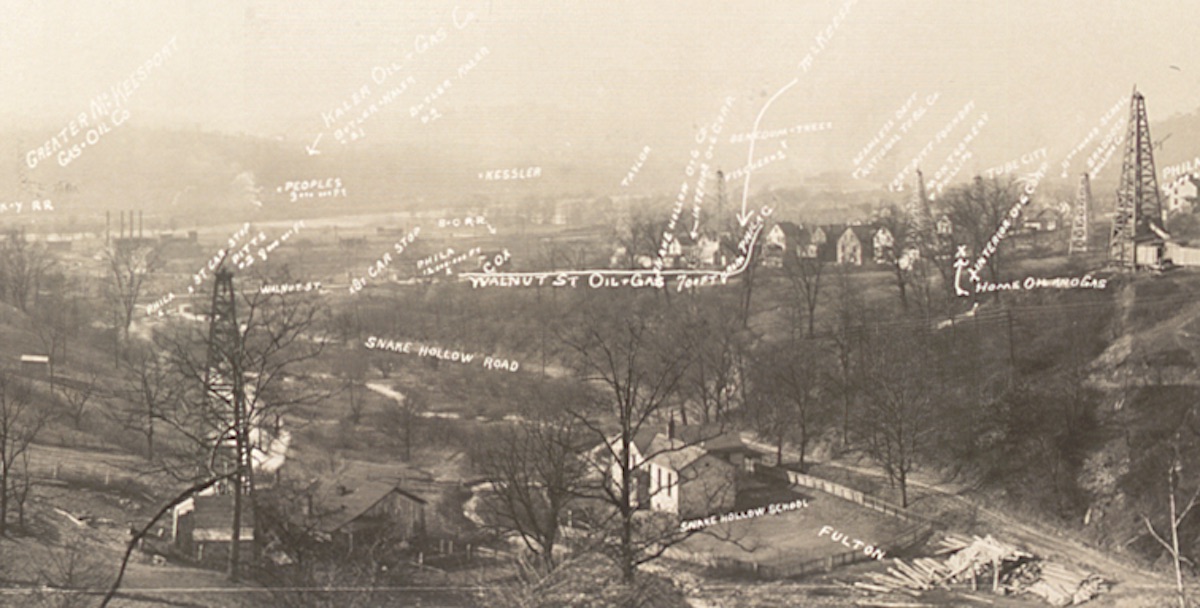
The last time McKeesport entered the “twenties,” the boom was on — the gas boom, that is.
In August 1919, two men, Samuel J. Brendel of West Newton and David Foster of McKeesport, began drilling a well near present-day Renziehausen Park on what Brendel later called “a hunch.”
Their well, in what was then called “Snake Hollow,” struck natural gas. A lot of it — 40 million to 60 million cubic feet of natural gas per day, at first.
By the end of 1919, the famous “McKeesport Gas Boom” had begun. From across the United States, people moved to McKeesport to get jobs drilling wells. Many more people bought shares of stock in hundreds of drilling companies — most of which would turn out to be worthless.
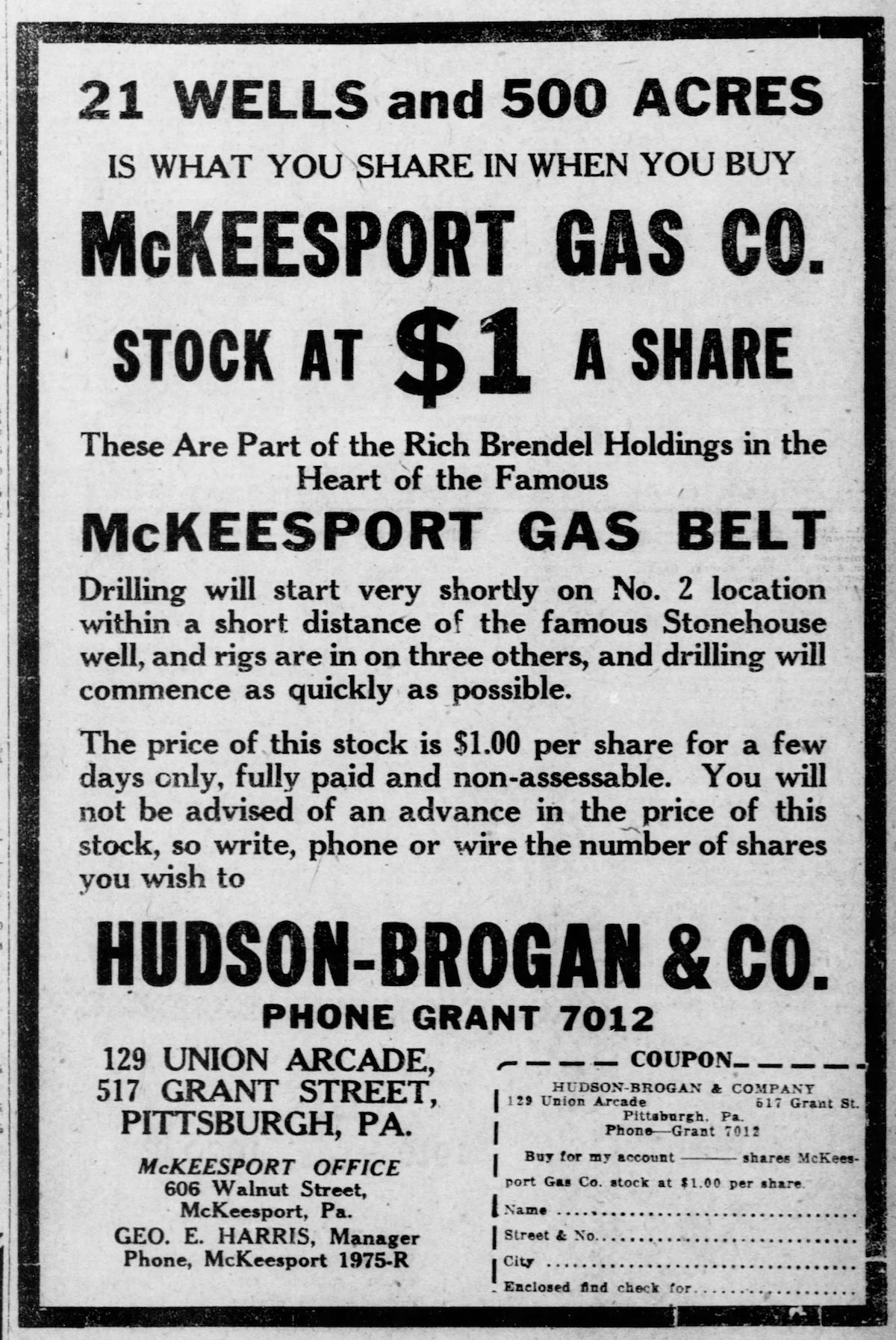
On Jan. 1, 1920, though, the newspapers were full of stories about how people in McKeesport had “gas fever.” Lots in Snake Hollow that were thought to be worthless a few months earlier were selling for $10,000, one correspondent reported. (In 2020 dollars, that’s well over $130,000.)
“Every time a new well comes in the price goes up,” the unnamed newspaper correspondent said.
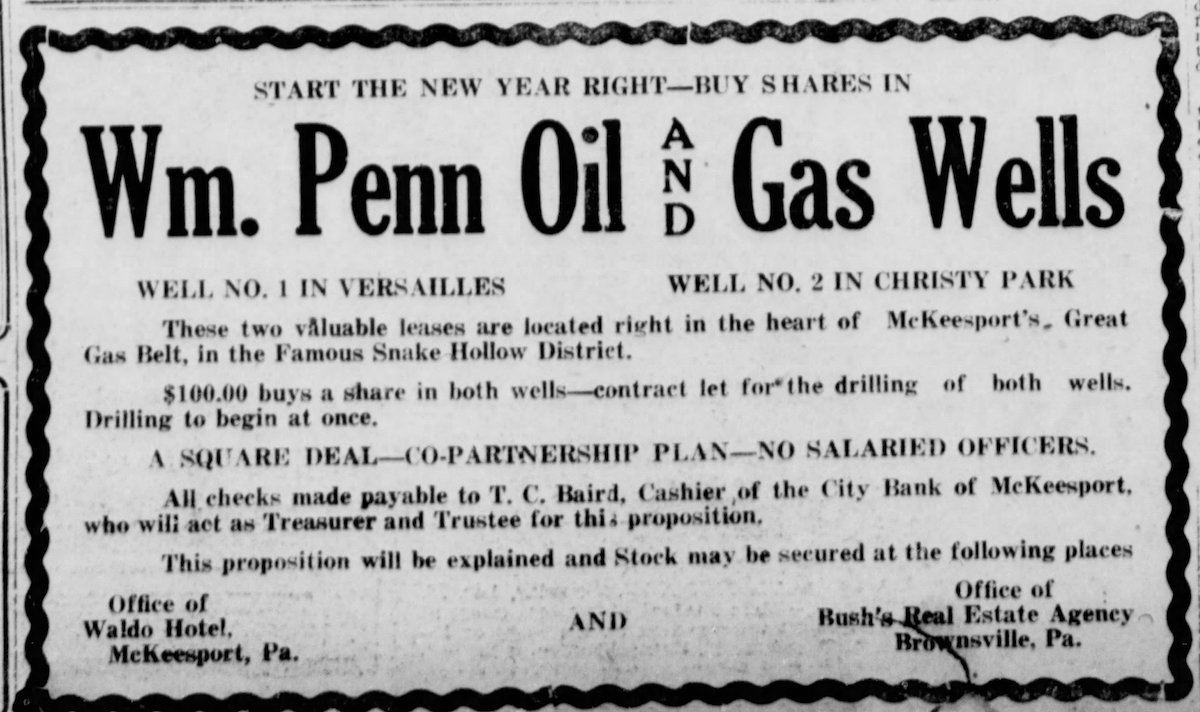
The Pittsburgh Post of Jan. 1, 1920, carried the announcement of a new daily newspaper being launched in McKeesport to cover the new natural gas industry. “The Daily Derrick,” to be located at 624 Walnut St., was already hiring typesetters, printers and machinists.
One story that was printed in newspapers from Michigan to Florida on Jan. 1, 1920, reported that the newest investors in the gas field were women.
Since women didn’t yet have the right to vote in federal elections — the 19th Amendment to the U.S. Constitution wasn’t ratified until August 1920 — the news of women investing in gas well drilling was treated as a novelty by papers such as the Miami, Fla., News and the Battle Creek, Mich., Enquirer.
“The pioneers were Miss Isabella Milmoe, assistant to the city treasurer, and Miss Irma Atwater, assistant to the city solicitor,” newspapers reported. “They heard so many stories of fortunes being made in the new development that they found a bit of land not under lease, contracted for a derrick and organized a company.”
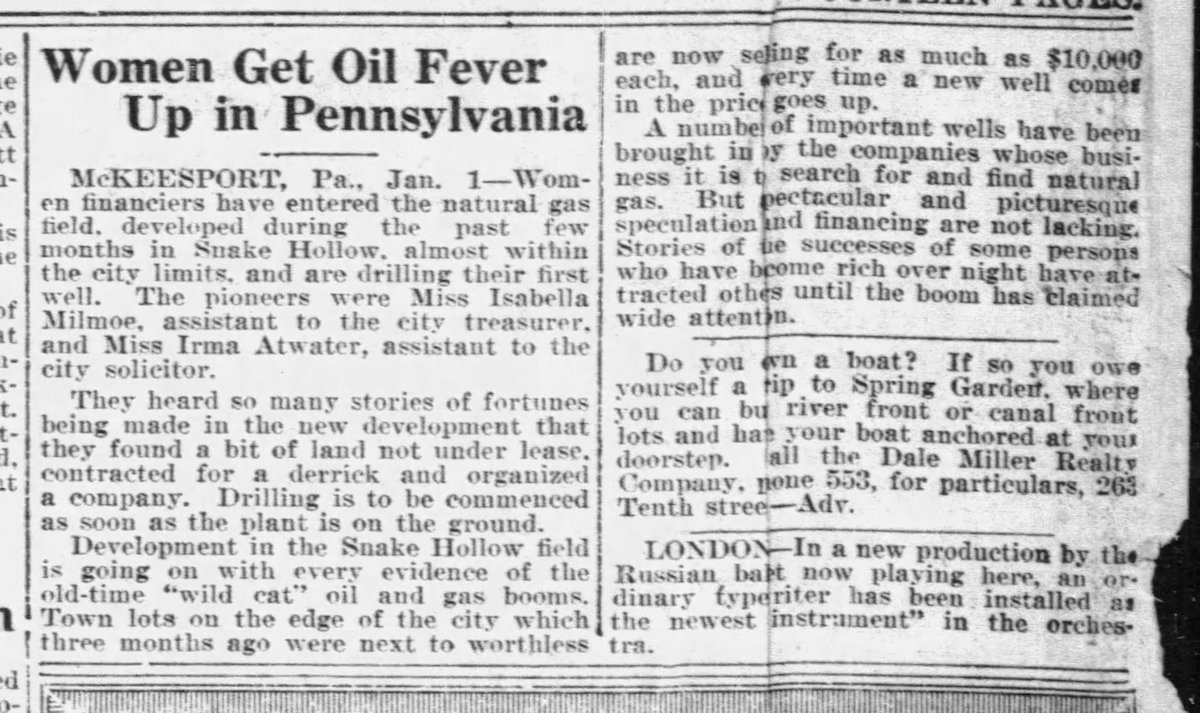
From coast-to-coast, advertisements urged investors to put their money into McKeesport gas wells. Stocks and investments were not closely regulated in the 1920s — incidents such as the McKeesport gas boom and, most importantly, the great stock market crash of 1929 would eventually change that.
So the claims that brokers made were, frankly, outlandish. “Fortunes are being made in this field,” said one ad. “The man or woman who, after visiting these fields, does not invest to participate in its tremendous profits, in our opinion, is not using good judgment.”
More than 22,000 wells were eventually drilled on the south side of McKeesport — present day Christy Park, Peterson Plan and the 11th and 12th wards.
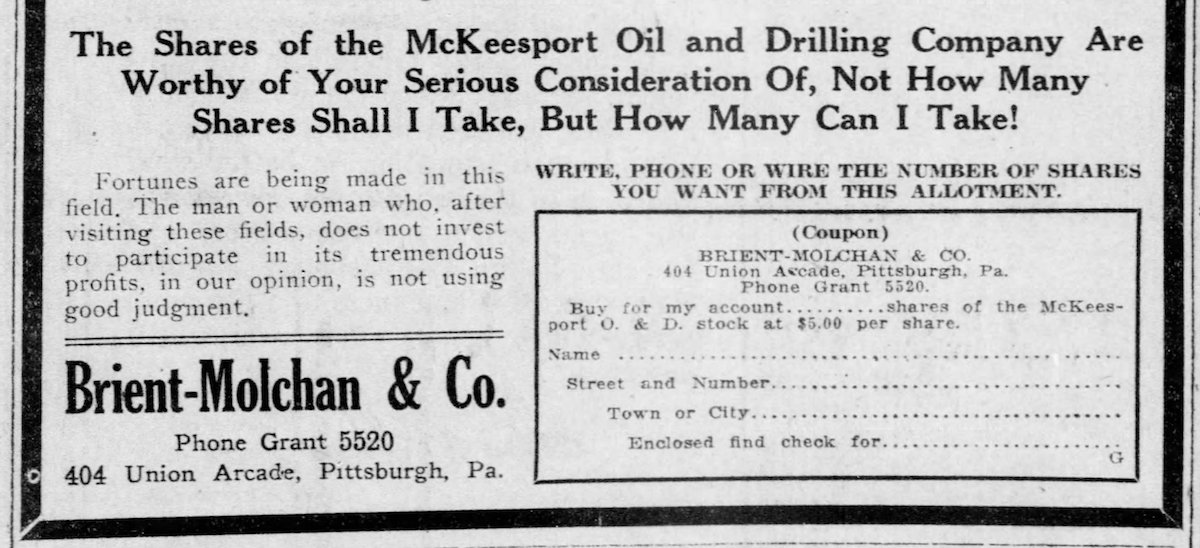
Alas, by the spring of 1920, most of those wells had dried up. It turned out that there wasn’t a huge gas field under McKeesport. Brendel and Foster had lucked out and hit a gas pocket, which soon was empty and filled up with water.
Peoples Natural Gas Co. later estimated that $35 million was poured into McKeesport gas wells that produced less than $3 million in gas.
It's unknown whether the “Daily Derrick” ever printed a single issue, or if it simply was another speculative investment that never paid off.
In 1934, the Pittsburgh Press reported that the useless wells stood “like grave stones” after “professional drillers packed their tools and took the next trains out of town.”
Foster owned a furniture store in McKeesport, so he stayed, but Brendel moved around the eastern United States, first to Ohio and later to Florida, drilling gas and oil wells and eventually accumulating a fortune estimated at several million dollars. He died in Pittsburgh in 1952.
That was the same year that the city of McKeesport annexed Snake Hollow — which had, by then, been renamed to the much more pleasant-sounding “Eden Park.”
In other news from 100 years ago today, Jan. 1, 1920, also brought word from McKeesport Mayor George H. Lysle that the booming city faced increased expenses.
The Pittsburgh Post reported: “It is said that the payroll estimates of some departments are greater than the entire appropriation for 1919.”
As a result, Lysle said, city property taxes for 1920 were going up from 10.25 mills to 12 mills.
Perhaps the gas wells weren’t reliable investments, but as most people knew in 1920 and still know today: “In this world nothing can be said to be certain, except death and taxes.”
Jason Togyer is editor of The Tube City Almanac and volunteer executive director of Tube City Community Media Inc. He may be reached at jtogyer@gmail.com.
Originally published January 01, 2020.
In other news:
"City Council Meeting …" || "10 Guns Seized in Arr…"
 TM
TM